The Deal for the EU Budget Framework 2014-2020: Disunited in Uniformity
Adelina Marini, February 12, 2013
 Unlike previous negotiations on the seven-year financial framework of the European Union, this time there was no thrill, no matter that the last summit continued a little over 24 hours. Although, at first glance, many similarities can be seen with previous negotiations, there are many big and essential differences with the talks on Budget 2014-2020 which ended with a deal that definitely cannot be called shattering and quite well fits into the definition of British Prime Minister David Cameron "more of the same". But the lack of thrill is less important than the availability of intolerance. Contrary to the slogan of European integration "united in diversity", the negotiations on the framework for the period until 2020 showed a disunity in uniformity. Uniformity of national problems.
Unlike previous negotiations on the seven-year financial framework of the European Union, this time there was no thrill, no matter that the last summit continued a little over 24 hours. Although, at first glance, many similarities can be seen with previous negotiations, there are many big and essential differences with the talks on Budget 2014-2020 which ended with a deal that definitely cannot be called shattering and quite well fits into the definition of British Prime Minister David Cameron "more of the same". But the lack of thrill is less important than the availability of intolerance. Contrary to the slogan of European integration "united in diversity", the negotiations on the framework for the period until 2020 showed a disunity in uniformity. Uniformity of national problems.
The big difference
The drafting of previous financial perspectives of the Union was always ascending not simply in numbers, but in terms of common European goals - to help the overcoming of the food crisis after World War II, to accelerate the process of economic cohesion between countries with radically different economic realities, to finance enlargement, to build a common European face on global stage. All these things managed to prevail over pulling national carpet strictly to national/nationalistic interests. This year, however, the situation is different and reflects why the European Union got the Nobel Peace Prize for 2012 - the Union has secured peace on the continent, but it is facing the question what is its next goal, as this website wrote precisely a year ago.
The time for starting negotiations on the funding of the common policies of the EU until the end of the decade coincided with the peak of the eurozone crisis. That is why the intention of the European Commission when presenting its first proposal for the multiannual financial framework (MFF) was to synchronise the efforts for overcoming the crisis that are already being invested (as the reform of economic governance and deepening of the European integration) not only with the targets of the decade-long economic strategy Europe 2020, but also with the efforts of the member states at national level. With that in mind, Brussels produced a proposal that practically offered a nominal increase of the money and included new community goals, like the investment instrument for infrastructure Connecting Europe Facility.
What the Commission proposal has underestimated, though, was the scale of  disunion. The austerity policies, leading to severe social decisions in most member states, have sharpened to the extremes the sensitivity of the European taxpayer who in some countries is an endangered species because of the headlong growth of unemployment, reaching in some big economies like Spain for instance hard to assimilate numbers of 25%. The tough fiscal restrictions and the bad economic perspectives are a big test for the political elites who are under great pressure. The fast upsurge of nationalistic parties, of populists and authors of easy political solutions has made it even harder to speak about ideals that thrive best only in an environment of peace and prosperity.
disunion. The austerity policies, leading to severe social decisions in most member states, have sharpened to the extremes the sensitivity of the European taxpayer who in some countries is an endangered species because of the headlong growth of unemployment, reaching in some big economies like Spain for instance hard to assimilate numbers of 25%. The tough fiscal restrictions and the bad economic perspectives are a big test for the political elites who are under great pressure. The fast upsurge of nationalistic parties, of populists and authors of easy political solutions has made it even harder to speak about ideals that thrive best only in an environment of peace and prosperity.
The deepening of the European integration is also a factor that has to be taken into account in the outcome of the negotiations on the long-term financial vision of the EU. And if by now the ambition was to develop together by helping the weaker, now the slogan is "enough carrying on our backs countries that have failed". Olli Rehn said recently during the inter-parliamentary week of the European Semester in the end of January, that for the first time he did not feel the North-South division. During the negotiations on Budget 2014-2020, however, that division could be felt quite strongly. And in the end of the day, the outcome of the negotiations is a compromise which very clearly underscores the division between the EU of the institutions and the EU of the member states and also between the member states themselves. This agreement conveys a clear message - patience with integration is depleted. This budget is the last that will look like this because in 7 years, when the next round of negotiations will begin, the EU will be very much different.
Reformists vs Statusquoists
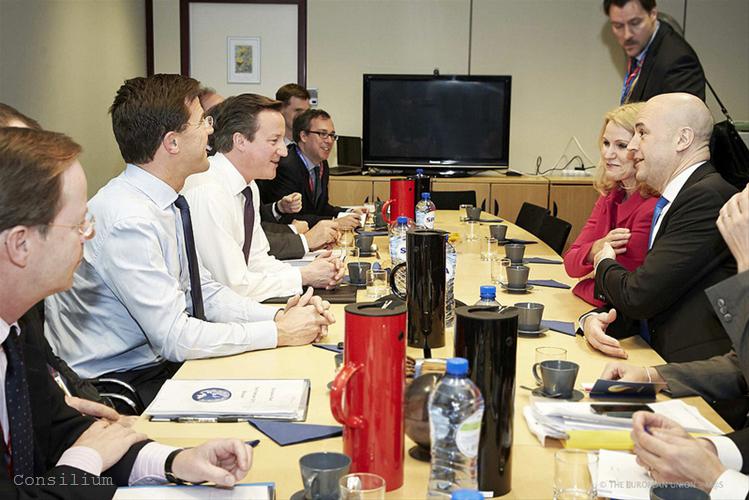 The compromise has been reached after a balance was found between the demands of the reformists and those who wanted to maintain the status quo. The reformists are those member states who insists on an overhaul of the budget framework to aim for more investments in R&D, in new technologies and education. Those are mainly the Nordic countries and Britain. Therefore, those are also the countries that pay the most, but also gain solid compensations. The statusquoists are the countries whose citizens have an allergy to sharp reforms and often show their discontent forcing their political elites to seek the lowest resistance. Those are the countries that insist the most on keeping funding for agriculture and economic cohesion. Those countries, led by France, were the closest to the positions of the Commission and Parliament.
The compromise has been reached after a balance was found between the demands of the reformists and those who wanted to maintain the status quo. The reformists are those member states who insists on an overhaul of the budget framework to aim for more investments in R&D, in new technologies and education. Those are mainly the Nordic countries and Britain. Therefore, those are also the countries that pay the most, but also gain solid compensations. The statusquoists are the countries whose citizens have an allergy to sharp reforms and often show their discontent forcing their political elites to seek the lowest resistance. Those are the countries that insist the most on keeping funding for agriculture and economic cohesion. Those countries, led by France, were the closest to the positions of the Commission and Parliament.
The third group of participants in the negotiations are the beneficiary countries part of which sympathise with the reformists and the other with the statusquoists but all of them share the opinion that the flows of money for economic catch-up should be maintained. And on the fourth side were the European Commission and the European Parliament who insisted the European budget to reflect the deepening integration and even federalisation of the EU, the growing competences of these two institutions and to reduce the saying of the member states, especially some of them.
And in all this cacophony of positions, Britain, as usual, was a special case, although a bit more special than traditionally because in the very end of the negotiations in the announced its intention to put its membership in the Union to a referendum in 2015 if the British citizens voted for the Conservatives. As some MEPs noted on Twitter, it is ridiculous to negotiate with a country which by the end of the budget framework might not be a EU member.
The agreement
The structure of the framework is almost the same as the current one (2007-2013) with some insignificant hues. The main headings in the budget are 6:
- Competitiveness for growth and employment, in which is included the Connecting Europe Facility;
- Economic and territorial cohesion;
- Sustainable growth: natural resources;
- Security and citizenship;
- Global Europe;
- Administration;
- Compensations.
The total amount of the framework has dropped from over one trillion, as was the initial proposal of the Commission, to 960 billion euros for commitments and 908 billion for  payments. This is the first in the history of European budgeteering real reduction of the framework. By now, the disputes about several percentage points were always an important part of the negotiations, but this time the situation was peremptory - the donor countries announced that they will not retreat even with a millimetre from their demand for a drastic cut of the budget. And this, by the way, is another big difference from the previous negotiations. Then the Lisbon Treaty was still far on the horizon and its content was not known which is why the rotation presidencies played a key role. In 2005 when at the December European Council the leaders of the 25 shook their hands, an essential part of the negotiations was led by the then British Prime Minister Tony Blair.
payments. This is the first in the history of European budgeteering real reduction of the framework. By now, the disputes about several percentage points were always an important part of the negotiations, but this time the situation was peremptory - the donor countries announced that they will not retreat even with a millimetre from their demand for a drastic cut of the budget. And this, by the way, is another big difference from the previous negotiations. Then the Lisbon Treaty was still far on the horizon and its content was not known which is why the rotation presidencies played a key role. In 2005 when at the December European Council the leaders of the 25 shook their hands, an essential part of the negotiations was led by the then British Prime Minister Tony Blair.
Now, although the rotation presidency did prepare the structure of the framework, there was no political leadership. In 2005, the negotiations were led by a Socialist and a visionary. In 2013, they were led by interest groups without a vision. In 2005, a deal was reached for 1.06% of gross national income of a Union of 25 countries (with Bulgaria and Romania expected to join in 2007) and in 2013 an agreement was reached for 1% of GNI for a Union of 28 member states (with the planned accession of Croatia on July 1st 2013).
For the first heading of the budget for smart and inclusive growth, the leaders have decided to set aside 126 billion euros which will be spent mainly on programmes related to the implementation of the Europe 2020 strategy and more specifically on funding research activities, innovation and technological development. A new element compared to the current framework is the introduction of an instrument to help small and medium-sized enterprises. In this heading is also the funding for the Erasmus programme, which 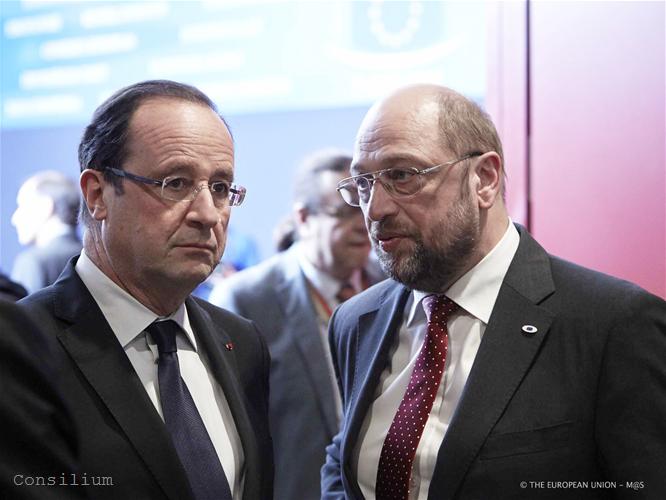 infected the European publicity around the disputes on the budgets for 2012 and 2013 which for the first time and against the EU rules came on deficit. In their conclusions, the leaders have had it written that the EU has a critical need to enhance and expand its scientific base.
infected the European publicity around the disputes on the budgets for 2012 and 2013 which for the first time and against the EU rules came on deficit. In their conclusions, the leaders have had it written that the EU has a critical need to enhance and expand its scientific base.
To compare, the money envisaged in Herman Van Rompuy's proposal from the end of last year under this heading was 153 billion euros. In spite of the drastic cut by 27 billion, practically the money aimed to boost economic growth increased significantly compared to the current framework for which in 2005 a little over 90 billion was planned.
As part of this heading is also the favourite infant of Jose Manuel Barroso - the facility for funding common European infrastructure projects which suffered significant cuts and from 46 billion euros in the last version of Herman Van Rompuy it is now proposed the Connecting Europe Facility to be funded by 29 billion euros, of which 10 billion to be transferred from the budget of the Cohesion Fund.
The cohesion policy registers real reduction, but instead the conditionality has increased. The amount should not exceed 325 billion euros which is an increase by almost 16 billion from Van Rompuy's proposal (309 billion), but compared to the current framework there is a reduction of almost 23 billion. To this heading are added two new initiatives of the European Commission and Herman Van Rompuy himself, aimed at tackling the consequences of the crisis and the high unemployment. Two billion and a half are allocated to help the most deprived in the EU, an amount increased by 400 million from the original proposal by Herman Van Rompuy. A youth employment initiative is also introduced with a budget of 6 billion euros.
The other resource-eating policy is the agriculture policy for which 373 billion euros are envisaged which is an increase compared to Herman Van Rompuy's proposal of 364 billion, but is reduced compared to 2007-2013 where the size of the heading for sustainability of natural resources is 412 billion euros. Against the backdrop of the general cut of the framework it is evident that the money for farm subsidies have not been reduced. The money for security and citizenship is cut compared to the recent 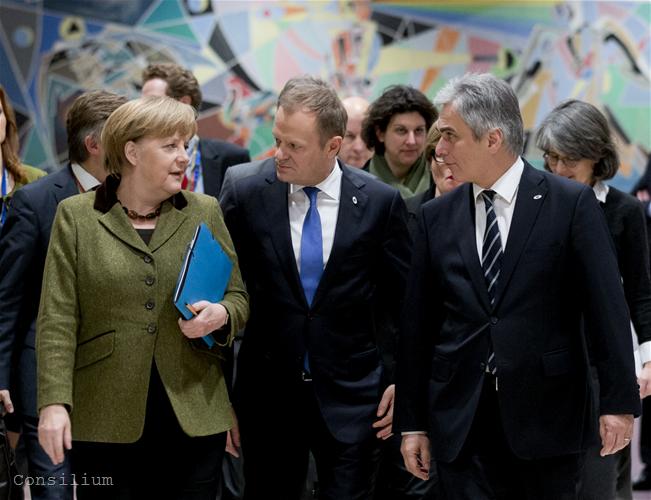 proposals and amount to 16 billion euros which, however, is an increase compared to the previous framework in which for internal security, migration, external borders protection and asylum 12 billion euros were envisaged.
proposals and amount to 16 billion euros which, however, is an increase compared to the previous framework in which for internal security, migration, external borders protection and asylum 12 billion euros were envisaged.
The Union's foreign policy will be financed with 59 billion euros, which is a reduction from the almost 66 billion proposed in end-November at the first summit. But, compared to the current framework, there is an increase of almost 4 billion. And in the end, the heading that British Prime Minister David Cameron turned into a cause, supported by Germany too - administration - in fact did not suffer significant changes. Herman Van Rompuy proposed the money for administrative spending not to exceed 62.629 billion euros, while the leaders shook hands for a billion less - 61.629 billion, which is again a significant rise compared to the money in the 2007-2013 framework - 55.535 billion.
Britain will keep its famous rebate, which is part of the EU treaties and can be changed only after treaty changes. Denmark, The Netherlands and Sweden, however, got real reductions of their annual contributions, respectively of 130 million, 695 million and 185 million. Austria, too, will receive a reduction from its gross contribution of 30 million in 2014, 20 million in 2015 and 10 million in 2016.
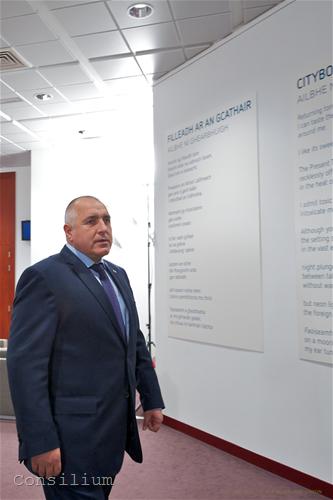 Bulgaria in the next multiannual period too will get money for decommissioning of reactors in its Kozloduy nuclear power plant. The final sum is 260 million, which against the backdrop of the proposal of the European Council president, is a significant increase. For the period 1999-2013 for the nuclear power station were planned 868 million euros.
Bulgaria in the next multiannual period too will get money for decommissioning of reactors in its Kozloduy nuclear power plant. The final sum is 260 million, which against the backdrop of the proposal of the European Council president, is a significant increase. For the period 1999-2013 for the nuclear power station were planned 868 million euros.
But with this deal the page of the negotiations on Budget 2014-2020 will not be turned. The agreement is yet to be approved by the European Parliament which at this stage looks like a tough task. The Parliament has a number of times stated throughout the negotiations process that it will take advantage of its right of veto unless its demands are taken into account, but in the past weeks the statements of European Parliament chief Martin Schulz (S&D, Germany) allow for a broad base of interpretations. Before and after the summit on 7-8 February in Brussels Mr Schulz said that Parliament will not approve a deal for a budget that will come up with a deficit. He, however, did not point the amount which he believes will take the European budget to a minus.
Most political parties in the Europarliament do not simply defend the budget from cuts, but they demand it to be increased in response to the growing responsibilities of the Union. The only groups that openly speak in defence of significant cuts of the common European spending in unison with the austerity measures on national level, are the group of European Conservatives and Reformists with a leader Martin Callanan (UK) and Europe of Freedom and Democracy of Nigel Farage (UK).
In a joint statement the leaders of the four biggest groups in the Europarliament - 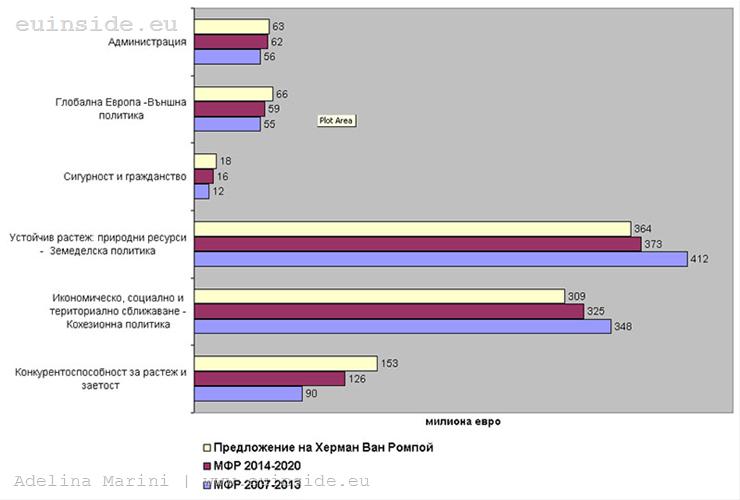 EPP, Socialists and Democrats, ALDE and the group of Greens and the European Free Alliance - stated that the European Parliament cannot accept the deal reached in the Council. They expressed regret that the European Council chief Herman Van Rompuy did not talk and negotiate with them in the past months. "The real negotiations will start now with the European Parliament. We will maintain our priorities which we have clearly stated many times", vow in the declaration Joseph Daul, Hannes Swoboda, Guy Verhofstadt and Daniel Cohn-Bendit. The four are also against a budget entirely based on priorities of the past.
EPP, Socialists and Democrats, ALDE and the group of Greens and the European Free Alliance - stated that the European Parliament cannot accept the deal reached in the Council. They expressed regret that the European Council chief Herman Van Rompuy did not talk and negotiate with them in the past months. "The real negotiations will start now with the European Parliament. We will maintain our priorities which we have clearly stated many times", vow in the declaration Joseph Daul, Hannes Swoboda, Guy Verhofstadt and Daniel Cohn-Bendit. The four are also against a budget entirely based on priorities of the past.
The deal is not simply based on priorities of the past. It very clearly shows the motives of the rich countries - to keep what is theirs, to reduce what is common and to send a warning to those who fail to cash down the trust.
 Kristalina Georgieva | © Council of the EU
Kristalina Georgieva | © Council of the EU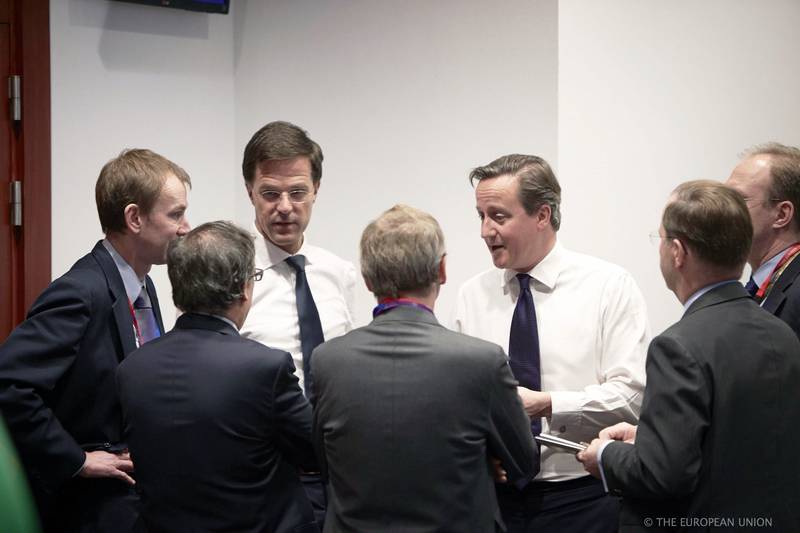 Mark Rutte, David Cameron | © Council of the EU
Mark Rutte, David Cameron | © Council of the EU | © European Parliament
| © European Parliament